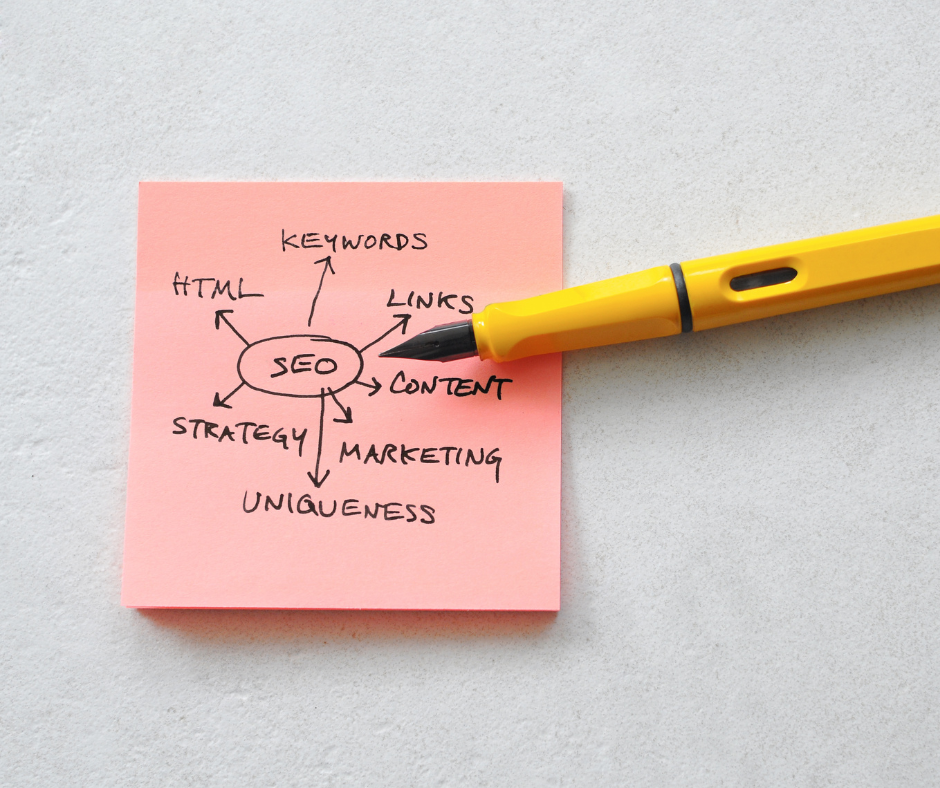Dan Crewe: "Customers need to stop looking at DHL as just a logistics company because we are more than that"
Dan Crewe: “Customers need to stop looking at DHL as just a logistics company because we are more than that”
Hand in hand with our customers and partners, Contentor continues sharing tips, opinions and first-hand experience that aim to give you a new perspective or help to navigate your business during the time of uncertainty.
We had an interview with our partner and the world’s leading logistics company, DHL. Dan Crewe, E-commerce Manager at DHL Express Sweden, shares some insights about the current situation in the world of logistics and talks of how DHL can help you to grow your business during the crisis.
Tell us how DHL is doing now?
Business is as usual in most of our 220+ countries and territories. However, these are extraordinary times, with many routes being affected by the measures taken by the local governments to curb the spread of COVID-19. In most countries, the restrictions applied by the local governments do not apply to the transport of goods and documents. However, some areas around the world may be limited due to the restrictions of local authorities, as well as additional transit time to and from certain destinations. The DHL Express network is operational for export and import shipments on these impacted lanes as long as the receiver in the destination country is accepting deliveries, we deliver the shipment.
How would you define a situation in your supply chain and how the crisis impacts it?
We have certain routines, and one of our routines is that we have to have a signature for pickup and mainly for delivery. We’ve had to change our routines in order to satisfy the customers’ demand of not having social contact in the same way. We have also been affected by the lockdowns, and this has impacted our ability to work, meaning we’ve had to change our routines in terms of sourcing of goods and transportation of goods. We’re a very process-driven company, so for us to change routines is actually quite straight forward. It’s simply a matter of shifting from one process to another, and everyone is aware of those processes, meaning we’re not affected too much. Our service level is probably as good as it was this time last year in terms of the number of deliveries being delivered on time and as per the timetable.
What is happening with DHL Express employment processes in Sweden during the crisis?
We haven’t brought in more staff. What we’re doing is making sure we’re using the staff we have in the correct way. We’re not in a position where we’ve had to change our staffing numbers. We’re still able to process everything. That’s the advantage of being a process-driven company. We are able just to fine tune our processes using the resources we’ve already got.
Do you have any tips to other companies on how they may optimise their work processes when it comes to the labour force?
The biggest tip that I can give is the same as for DHL. We are constantly reviewing our processes and questioning why we do things in a certain way. How can we make things better? Is there an improvement that can be made? Is there a change that can be made that will enhance things? That is everybody’s responsibility, not just the quality manager or the quality team. Everybody that is part of a process has that responsibility to improve things and be able to make those suggestions, which is why DHL is very good at making changes. If we see that there is an improvement that is going to benefit our customers, then we will make those changes. My tip is to be constantly reviewing what you are doing, not just once a year or when you feel like it, but to be reviewing all the time.
Do you think it is possible to implement this tip right now?
I think right now is probably a better time than any time, because we’re recreating business. We have a lot of people that are starting to, or are already, working from home. They are able to look at the business from a distance and see that certain things can be changed. Traditionally we work from an office. People gather in an office and work, and all of a sudden, you’ve now got probably millions of people working from home – and businesses are still working. They still function. Everything still exists. I think a lot of people have realised you can run a business with people working from home, and the business will still flourish. I think now is a good time to be able to look at, not only the processes, but the way we work and the things that we do that can make everybody’s business life better.
I know that DHL wrote about it recently on its blog. You’re doing a great job keeping your audience updated and sharing some tips on how to work from home or how to optimise business processes. It seems that DHL has much broader expertise than within logistics. Can you tell us more about how DHL can help companies beyond logistics matters?
What DHL has achieved is to take a really good look at what we are best at doing and focusing on this instead of branching out and doing things that we are not as good at doing. Our number one strength in DHL Express is the fact that we can move from A to B within 24 hours, and we are really good at it. We shouldn’t now be saying, “Let’s diversify and start doing something else.” I think that other companies should now be taking the opportunity to really review and say, “What are we good at?”; “What are we best at?”; “What can we be world-leading at? – and focus on those things. I think that’s DHL’s strength; that we have gone back to our core and only work with core business and nothing else. I think that’s something DHL can help other companies see: that they can be a world leader even from little old Sweden with its 10 million in population. They can be world leaders by working with the world leaders, such as DHL and learn from what we did and let us come in and help them look at primarily their supply chain.
For e-commerce companies, we would look at everything they do, because we have such a huge experience in e-commerce. We have huge experience in retailing, and we meet people all the time and have ideas and knowledge that we are only too willing to share and give to customers. I think our customers, and customers in general, need to stop looking at DHL as just a logistics company because we are more than that. We are here to make them successful. We are here to make them be number one in their industry. We can’t help them develop their products, but we can help them make sure their products are in the market at the right time with the right sort of service behind it.
There is an opinion that the current crisis is an opportunity for development. What do you think about this opinion? Do you agree or disagree with this?
I totally agree. Out of chaos comes creativity. And we are in a chaotic time. If you can be creative, if you and the company can find a way to use that creativity to appeal to your customers and to do things differently the right way, you will then stick out. You are then going to make an impact. You are going to be one of those companies that people raise their eyebrows and say, “Wow, look at that. Look at what they did. That’s where they made their reputation.” By being creative, I don’t mean that you suddenly stop what you were doing to do something else that is wackier or more outlandish but rather being creative within the resources and your own market—just being different so that you stick out. I spend a lot of time reading on LinkedIn, and I see that people or companies are offering free webinars, free advice, all sorts of things that they think people are going to want. But it’s just the same thing. They are just trying to sell something, but they are doing it in a slightly disguised way. I’m looking for more creative ways. Things that stick out. Wow, that’s different! I’d like to see that. I’d like to be involved in that project. I definitely think a chaotic time is a time for creativity that will be a solution for companies to get out of the difficult times ahead.
You mentioned creativity. Do you think that DHL might help companies that are looking for these creative solutions?
What we would look at is being creative with their supply chain obviously, because logistics is where we have our true expertise and where we can really offer something different. We can show them creative solutions. For example, I’ve just worked on a project where I’m looking at a creative way of using express shipping for an e-commerce customer. To try and attract more of their customers towards an express shipping solution, which obviously enhances the reputation of that company because their consumers are getting their product quicker. They are able to show on social media that “Now I’ve got this product, and it came within 24 hours.” Creative use of the services that we offer. Not only towards consumers in the commerce world but towards manufacturing companies as well. We’ve always prided ourselves in looking for ways of improving the flow of goods that will improve the flow of productivity. And now is the ideal time to be looking at that because goods need to come in from China, Italy, Spain, etc. They need to be processed, manufactured, and now is the time for us to be able to actually spend some time with companies and say, “Right, this is the way that you could do it by using the DHL range of companies and services.”
You mentioned a customer case with an e-commerce company for which you helped to develop a creative solution for express delivery. Can you tell more about this solution?
It’s a company that doesn’t offer express shipping. They offer only standard free qualifier shipping. We have been asked to have a look at how they can offer express shipping without incurring too much of extra investment in shipping from their perspective and how they can incentivise their customers actually to choose express shipping. We have basically put together some research that shows why express shipping is important and why having different shipping options is important. That research has nothing to do with DHL. It is standard market research that we have sourced. We have then put together very simple suggestions, e.g. “if a customer is reaching the standard free shipping qualifier level, then they could offer express shipping for a 50% discount, whereby they can offer express shipping for 6 EU.” Whereas normally if you don’t reach the free shipping qualifier, you pay 12 Euro. If you are spending 80 EU on products, spending another 6 Euro in order to get it tomorrow is nothing really, and when you look at the investment that the merchant is making their investment is probably very similar to what they are already making when it comes to standard shipping. So, we are looking at that, as well as incentivising customers to buy more by saying “If you spend 110 EUR, then you get free express shipping.” So, if they were maybe only going to be spending 100 EUR, then they see something else for 10 EUR and know they can get it tomorrow. So they’ll add it to their basket which obviously will increase the order value. Also, we have suggested campaigns where they offer free express shipping on all orders under the launch of a new collection. So, we are just trying to be a bit more creative and not just putting up what express shipping will cost you – 10 EUR, and that’s it. We are incentivising customers to spend a little bit more in the webshop and get something for it, which is express shipping.
Do you think it is the right time to scale up and sell more internationally?
My opinion is that now is the time. Not only because you’ve got a lot of people that are stuck at home, who are keen to purchase, the boredom factor is coming in, and they start to purchase. But now is also a good time to expand because people need to get more sales, merchants need to improve their sales, they need to be getting more value out of their webshop. If they are only selling in the Nordic countries, you are looking at a population of 20-22 million people, and on the doorstep to Europe, you’ve got another 450 million people. Now is the time to go for it and actually sell yourself out of the crisis, rather than try and save yourself out of the crisis. There is a famous case that happened many years ago when Motorola was having trouble, and their sales were dropping. They did something that no other company had done before. They invested in another 250 salespeople out selling their products. Normally when you go into a crisis, you pull back on salespeople, you pull back on training and marketing. Motorola did the exact opposite, and they invested loads of money in increasing their presence on the market and getting people on the streets. And it worked. They sold themselves out of the crisis. If they hadn’t done that, then Motorola would not exist anymore; was the opinion of the financial experts. So, I think the best way to get out of the crisis is to sell your way out of the crisis, and that is by taking the opportunity to expand onto the European market. There is nothing difficult about going into Europe. It’s exactly the same as selling in Sweden. You don’t need any other documentation. If you’ve got a website that is translated into English – 340 million people in Europe can speak English on a business level – so they can buy products from a webshop without any problem. It’s an ideal opportunity to actually go for it and sell yourself out of the problem.
What would be the most important message that DHL likes to deliver to its stakeholders right now during this crisis?
Apart from “Be safe and careful,” our strongest business message is that we are still delivering. DHL is still delivering to 99.3% of the world. There are countries where we obviously are limited in what we can do. But we are delivering. We are out making sure goods are getting from A to B as quickly as physically possible. We are not punishing people. We are not putting in extra cost where it is not necessary. We are trying to keep our business as normal as possible, and we are achieving that. Anybody who is struggling with their current shipping option should be talking to DHL because we are still doing business, and we are still transporting goods around the world.


